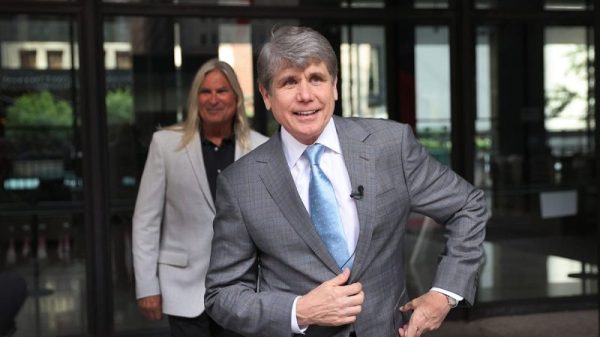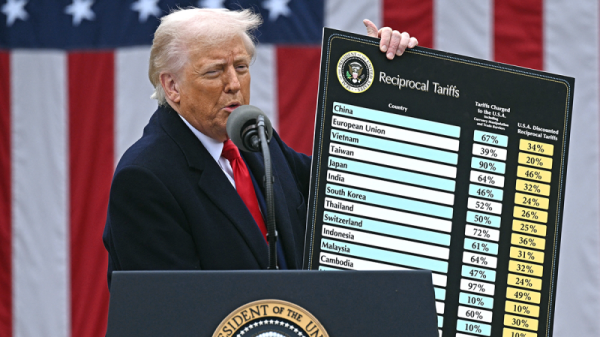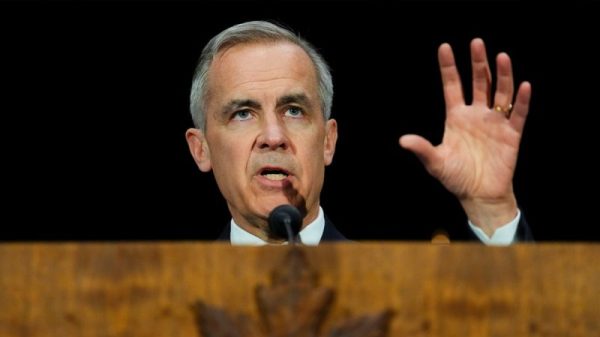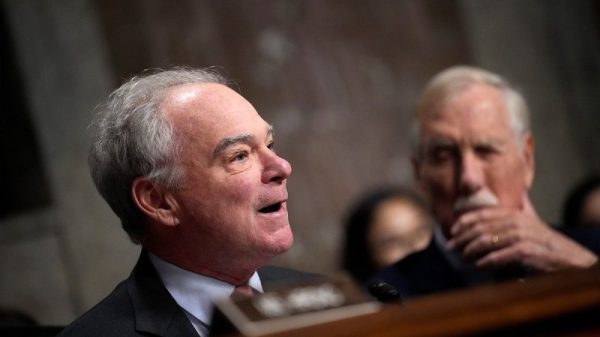Overview
As the world approaches what analysts refer to as the point of no return for climate change, governments and industry leaders are ramping up their commitments to clean energy and net-zero carbon emission. But commitment alone may no longer be enough, as global emissions in 2022 reached nearly 37 gigatons.
If the world is to fulfill its climate goals, greenhouse gas emissions must be reduced by 7.6 percent each year between 2020 and 2030, according to a United Nations report. The corporate sector has increasingly taken a leadership role in this arena, collectively committing over $100 trillion of market cap to meet net-zero obligations. While it’s certainly possible for businesses to achieve the necessary reduction goals internally, carbon offsetting fills a crucial gap for those striving to achieve their net-zero goals, especially when immediate large-scale emission reductions are challenging.
What this means is that an individual or organization can cancel out the impact of their carbon emissions by purchasing or investing in projects that remove the same amount of carbon dioxide from the atmosphere. Typically, this is done through carbon credits, and how they work is relatively simple.
Carbon credits can be generated from a wide range of different projects and systems — including direct air capture and fuel switching — and under a wide set of legal arrangements. Carbon credits are defined through a project design document, which specifies all relevant details about the carbon credit project, also known as a voluntary market carbon project. This includes land title, volume, measurability and additionality.
All voluntary market carbon projects are governed and managed by one or more independent standards agencies, depending on the region. These agencies operate in a similar fashion to the International Accounting Standards Body, which is responsible for establishing and maintaining international financial reporting standards.
In the case of restoration and conservation-based projects, carbon credit rights may either be associated with or separate from their underlying land title. In both cases, the company responsible for maintaining the project must demonstrate that investment will result in additional restoration beyond what is already present. Credits may either be purchased directly or deployed under streaming or royalty agreements, which offer a share of revenue in exchange for investing in development.
Promising though it may sound, even the voluntary carbon market may struggle to provide the necessary offset for businesses to reach their goals by 2030. As the market exists now, the maximum practical amount of carbon credits is roughly 8 to 13 gigatons of carbon dioxide. However, 1 to 5 gigatons is a far more realistic projection.
This is a problem, given that demand for carbon credits is expected to reach 15 gigatons by 2030. The voluntary carbon market is booming, and most buyers expect that this growth will continue — to the extent that over half of companies surveyed by BCG expect removal credits to dominate their portfolio. They view spending on carbon credits as non-discretionary and believe that guidance from organizations, such as the Science Based Targets Initiative and Voluntary Carbons Market Integrity Initiative, will grow increasingly influential.
In other words, unless something changes, the carbon markets will be starved for supply for decades to come. There are simply too many challenges preventing potential carbon reserves from entering the market, including increasing complexity and scale, geographic concentration, growing risks and an overall lack of financial attractiveness.
But there’s a simple solution to this challenge. By focusing on nature-based voluntary carbon projects, we can unlock 65 to 85 percent of credits. Nature-based solutions are an important part of addressing the climate challenge, given that deforestation and degradation account for 20 percent of global carbon emissions. Moreover, by targeting highly productive, low-cost jurisdictions, companies can generate significant returns to scale.
This is the basis of Klimat X’s (TSXV:KLX) value proposition. Klimat X generates long-term (30+ years) recurring revenue streams and unprecedented returns in carbon markets by taking project development risk on restoration and conservation projects and pre-selling directly to large corporate buyers of carbon credits to meet their net-zero goals.
Founded in 2021 by James Tansey, (who holds a PhD in environmental science), Klimat X is an industrial-scale carbon exploration and development company diversified across multiple jurisdictions. Drawing on 15 years of experience leading the development of carbon projects — which has produced over 50 million tonnes of carbon credits to date — Tansey intends for the company to become a leader in the protection and restoration of natural systems.
With some of the most senior executives from the carbon and resource sectors as part of its leadership team, Klimat X works at the national level to develop nature-based carbon projects on an unprecedented scale. To that end, the company is rapidly developing a globally diversified forestry and blue carbon portfolio. Currently, it owns between 40 and 100 percent of three initial assets and has a development pipeline with over 3 million tons spread across Latin America, Asia and Africa.
Klimat X has engaged with a network of partners and developers to help it focus on the lowest-cost, largest-scale projects, cultivating them to a stage where it can directly market to buyers through large offtake agreements. The company recently completed a large-scale pre-purchase agreement with a Fortune 100 company for up to 1.9 million credits from 5,000 hectares in Sierra Leone that will generate over $110 million in revenue.
Through the development of its voluntary carbon projects, Klimat X is committed to operating ethically and in compliance with regulatory standards. More importantly, Klimat X is dedicated to supporting the communities and economies of the regions in which it operates. This commitment is exemplified in its recent partnership with Pomeroon, a socially and environmentally responsible producer of coconuts and spices based in the Caribbean.
Klimat X projects generate substantial economic benefits for the communities in the regions where they operate. The company shares income through employment opportunities, smallholder lease payments, and revenue-sharing agreements, particularly in regions with high levels of poverty and unemployment.
Klimat X is backed by a leadership team consisting of veterans from both the carbon and resources sectors, led by its CEO James Tansey. Director Celia Francis is a pioneer in the climate tech space. Board member Abayomi Akinjide has substantial experience in complex cross-border mergers and acquisitions alongside a host of other legal challenges. And Kevin Godlington, director of operations, is a specialist in post-conflict stabilization, stemming from his position as a former member of the British Foreign Office.
Company Highlights
Klimat X is an industrial-scale carbon credit project developer focused on natural solutions such as conservation, reforestation and mangrove restoration. Through collaboration with both the national government and its network of partners and developers, Klimat X is focused on developing low-cost carbon offset projects in highly productive jurisdictions.The company already maintains between 40 and 100 percent ownership of three initial assets alongside a development pipeline of 3 million tons of carbon credits diversified across Asia, Latin America and Africa. In addition to rewilding and reforestation in Sierra Leone, agroforestry in Guyana and mangrove restoration in Mexico, Klimat X is assessing the following regions for additional natural carbon projects: SurinameKurdistan (Iraq)Balochistan (Pakistan)MongoliaColombiaDemocratic Republic of CongoThe existing Yucatan and Sierra Leone projects alone will result in roughly 44 million tons of carbon credit production. That supply stands to exponentially increase as the other projects in the pipeline are developed.The company works with some of the largest buyers in the world including Fortune 100 companies.Klimat X currently maintains a 60-percent interest in sustainable coconut and spice producer and processor Pomeroon.
Core Projects
Sierra Leone
Klimat X’s flagship project in Sierra Leone seeks to reforest and rewild land previously cleared for mining and palm plantations. As of September 2022, the company has restored roughly 400 hectares and plans to reach 1,200 hectares by the end of summer 2023. Klimat X has also secured an additional 57,000 hectares of land degraded by agricultural activity, which it intends to restore through collaboration with local communities.
Highlights:
Coastal Mangrove Restoration: In addition to its currently ongoing restoration efforts, Klimat X has identified areas on the coast where mangroves have been seriously degraded and remaining mangroves are under threat. It has established a 15 hectare test site, planting multiple mangrove species to determine which are best-suited for the region. Smallholder Agreements: Rather than purchasing or leasing land, Klimat X is establishing agreements with regional Chiefs to have smallholders occupy the land. It holds carbon rights from reforestation investments and is responsible for lease payments and revenue-sharing obligations. Long-term Conservation: Over the next fifty years, the project is expected to sequester millions of tons of carbon back into the trees and soil. Framework for Future Growth: Klimat X currently has plans to expand in West Africa using a similar model to that applied in Sierra Leone.
Yucatan (Mexico)
In Yucatan, Klimat X is working closely with local partner Compañía Mexicana de Captación de Carbono to restore coastal mangrove degraded by road infrastructure. This project will restore tidal and nutrient flows to the region along with critical biomass. Currently, the partnered companies have focused accelerated efforts over a 25,000-hectare area. In the future, this could expand to 100,000 hectares.
Guyana
Klimat X’s conservation efforts in Guyana are largely built around coconut water production with a smaller carbon component. Working with both the national government and partner organization Pomeroon, the company seeks to develop carbon and agroforestry opportunities in the region. This will primarily be achieved through the rehabilitation of coconut and mixed agriculture estates.
Management Team
Dr. James Tansey – Founder and Chief Executive Officer
Dr. James Tansey is a leading academic focused on clean energy strategy and innovation. For the last 15 years, he has served as a professor at the University of British Columbia’s Sauder School of Business, where he has advised the BC and federal governments on clean energy strategy and social enterprise. Tansey has served as founder and CEO of Canvas Impact Advisors, a private company utilizing a research-led approach to impact and clean tech investment, advising global clients with more than $25 billion of assets under management. He was also the CIO of Global Sustainable Capital Management, which invests in sustainable commodities and agriculture in global and emerging markets. Earlier in his career, he led the world’s first carbon-neutral Olympics in 2010 in Vancouver.
Tansey is the CEO and founder of Klimat X, with a PhD in environmental sciences.
Matthew Roma – Chief Financial Officer
Matthew Roma is a chartered professional accountant and the CEO of RW Global Consulting, a private company providing corporate finance, accounting and capital advisory services to private and public companies. In this role, Roma serves as a director and/or officer to a number of venture public companies in the natural resource and technology sectors. Roma articled at Deloitte LLP, where he specialized in assurance and advisory services for publicly listed companies based both in Canada and the United States.
Kevin Godlington – Director of Operations
Kevin Godlington is a managing director of Planting Naturals, an organic and sustainable palm oil producer with a commitment to social responsibility and environmental stewardship. He specializes in managing day-to-day upstream operations in Sierra Leone, supporting the network of farmers and partners. Godlington is formerly a member of the British Foreign Office working in highly complex post-conflict stabilization, including 12 years with the British Army.
Celia Francis – Director
Celia Francis is a proven pioneer in leading emerging digital and climate-tech-focused companies. She plays a central and active role in the emergence of carbon markets around the world, working on finance, technology solutions and project origination efforts. Francis was chief commercial officer at Earthshot, brokering voluntary carbon credit financing into a variety of high-quality nature restoration projects around the planet. She is also a board member at NREP, the leading real estate and urban developer in Northern Europe with a science-based commitment to net-zero by 2028.
Francis is also the founder of The Art of Forests Alliance, a cooperative of the world’s most experienced at-scale forest restoration organizations. After graduating from Harvard and gaining an MBA from MIT, she held CEO and GM roles at leading technology companies, including AltaVista, T-Mobile and social networking company WeeWorld. She also served as CEO of Rated People, the UK’s leading online home improvement marketplace which brings together homeowners and tradespeople.
Neil Passmore – Director
Neil Passmore is the co-founder and president of Pomeroon. Educated at the University of Oxford (BA, MBA), Passmore served in the British Army before joining J.P. Morgan as an emerging markets banker. He is CEO of investment bank Hannam & Partners, focused on natural resources.
Abayomi Akinjide – Board Member
Abayomi (Yomi) Akinjide is a partner and co-leader of Fasken’s Global Energy and Climate Group. His practice focuses on corporate, corporate finance and commercial work, particularly in the energy, mining and telecoms sectors.
Akinjide has substantial experience in complex cross-border mergers and acquisitions, financings, private equity transactions, drafting commercial agreements, advising on joint ventures and many other legal issues. He has broad corporate experience and management skills, having led large teams on transactions usually involving multiple jurisdictions in a variety of sectors. He has a good understanding of financial markets and is a skilled negotiator, dealing with both transaction counterparties and regulators.
Akinjide has advised a number of clients, including banks, brokers, private equity sponsors and corporates. His practice is global; he is recognized as an expert on Africa and dual-qualified in England and Wales and Nigeria. He is an expert in Nigerian corporate and oil and gas law, has published various legal materials in Nigeria and has spoken at seminars on matters relating to the Nigerian legal system.


































